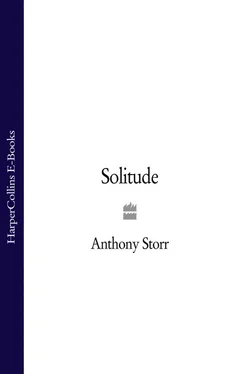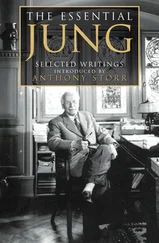Contemporary Western culture makes the peace of solitude difficult to attain. The telephone is an ever-present threat to privacy. In cities, it is impossible to get away from the noise of motor traffic, aircraft, or railways. This, of course, is not a new problem. City streets, before the invention of the automobile, may, intermittently, have been even noisier than our own. The iron-bound wheels of carts travelling over cobbles make more noise than rubber tyres on asphalt. But the general continuous level of noise in cities is constantly increasing, despite the attempts of legislation to curb it.
Indeed, noise is so ubiquitous that many people evidently feel uncomfortable in its absence. Hence, the menace of ‘Muzak’ has invaded shops, hotels, aircraft, and even elevators. Some car drivers describe driving as relaxing, simply because they are alone and temporarily unavailable to others. But the popularity of car radios and cassette players attests the widespread desire for constant auditory input; and the invention of the car telephone has ensured that drivers who install it are never out of touch with those who want to talk to them. In the next chapter, we shall look at some aspects of ‘sensory deprivation’. As noise abatement enthusiasts have discovered, its opposite, sensory overload, is a largely disregarded problem. The current popularity of techniques like ‘transcendental meditation’ may represent an attempt to counterbalance the absence of silence and solitude which the modern urban environment inflicts upon us.
Removing oneself voluntarily from one’s habitual environment promotes self-understanding and contact with those inner depths of being which elude one in the hurly-burly of day-to-day life. In the ordinary way, our sense of identity depends upon interaction both with the physical world and with other people. My study, lined with books, reflects my interests, confirms my identity as a writer, and reinforces my sense of what kind of person I consider myself to be. My relationships with my family, with colleagues, friends, and less intimate acquaintances, define me as a person who holds certain views and who may be expected to behave in ways which are predictable.
But I may come to feel that such habitually defining factors are also limiting. Suppose that I become dissatisfied with my habitual self, or feel that there are areas of experience or self-understanding which I cannot reach. One way of exploring these is to remove myself from present surroundings and see what emerges. This is not without its dangers. Any form of new organization or integration within the mind has to be preceded by some degree of disorganization. No one can tell, until he has experienced it, whether or not this necessary disruption of former patterns will be succeeded by something better.
The desire for solitude as a means of escape from the pressure of ordinary life and as a way of renewal is vividly illustrated by Admiral Byrd’s account of manning an advanced weather base in the Antarctic during the winter of 1934. He insisted on doing this alone. He admits that his desire for this experience was not primarily the wish to make meteorological observations, although these constituted the ostensible reason for his solitary vigil.
Aside from the meteorological and auroral work, I had no important purposes. There was nothing of that sort. Nothing whatever, except one man’s desire to know that kind of experience to the full, to be by himself for a while and to taste peace and quiet and solitude long enough to find out how good they really are. 4
Byrd was not escaping from personal unhappiness. He describes himself as having an extraordinarily happy private life. Nevertheless, the pressures of organizing a variety of expeditions during the previous fourteen years, combined with anxiety about raising money for them and the inevitable publicity which surrounded his achievements, induced what he called ‘a crowding confusion’. He reached a point at which his life appeared to him aimless. He felt that he had no time to read the books he wanted to read; no time to listen to the music he wanted to hear.
I wanted something more than just privacy in the geographical sense. I wanted to sink roots into some replenishing philosophy. 5
He also admits that he wanted to test his powers of endurance in an existence more rigorous than anything he had yet experienced. His hopes for finding a new meaning in life were realized. In his diary for 14 April, he records:
Took my daily walk at 4 p.m. today in 89° of frost … I paused to listen to the silence … The day was dying, the night being born – but with great peace. Here were imponderable processes and forces of the cosmos, harmonious and soundless. Harmony, that was it! That was what came out of the silence – a gentle rhythm, the strain of a perfect chord, the music of the spheres, perhaps.
It was enough to catch that rhythm, momentarily to be myself a part of it. In that instant I could feel no doubt of man’s oneness with the universe. The conviction came that that rhythm was too orderly, too harmonious, too perfect to be a product of blind chance – that, therefore, there must be purpose in the whole and that man was part of that whole and not an accidental off-shoot. It was a feeling that transcended reason; that went to the heart of man’s despair and found it groundless. The universe was a cosmos, not a chaos; man was as rightfully a part of that cosmos as were the day and night. 6
On another occasion, he refers to feeling ‘more alive ’ than at any other time in his life. Unfortunately, Byrd became ill, poisoned by the fumes of a faulty stove. The latter part of his account is largely concerned with his fight against physical weakness rather than with his oceanic, mystical experience. But in spite of the nearly fatal outcome of his experience, Byrd, four years after his ordeal was over, was able to write:
I did take away something that I had not fully possessed before: appreciation of the sheer beauty and miracle of being alive, and a humble set of values … Civilization has not altered my ideas. I live more simply now, and with more peace. 7
What Byrd is describing is a mystical experience of unity with the universe which is familiar to those who have read similar accounts furnished by religious adepts. As William James wrote in The Varieties of Religious Experience,
This overcoming of all the usual barriers between the individual and the Absolute is the great mystic achievement. In mystic states we both become one with the Absolute and we become aware of our oneness. 8
In his paper Civilization and Its Discontents , Freud refers to the correspondence which he had with Romain Rolland, to whom he had sent his book dismissing religion, The Future of an Illusion. Rolland complained that Freud had not understood the true source of religious sentiments, which Rolland affirmed to be ‘a sensation of “eternity”, a feeling as of something limitless, unbounded – as it were, “oceanic” Freud states that he can find no trace of any such feeling in himself. He goes on to say that what Rolland was describing was ‘a feeling of an indissoluble bond, of being one with the external world as a whole’. 9
Freud proceeds to compare this feeling with the height of being in love, in which a man may feel that he is one with his beloved. As might be expected, Freud regards the oceanic feeling as a regression to an earlier state: that of the infant at the breast, at a period before the infant has learned to distinguish his ego from the external world. According to Freud, this is a gradual process.
He must be very strongly impressed by the fact that some sources of excitation, which he will later recognize as his own bodily organs, can provide him with sensations at any moment, whereas other sources evade him from time to time – among them what he desires most of all, his mother’s breast – and only reappear as a result of his screaming for help. In this way, there is for the first time set over against the ego an ‘object’, in the form of something which exists ‘outside’ and which is only forced to appear by a special action. 10
Читать дальше












